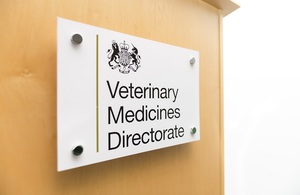Support for vulnerable applicants to the EU Settlement Scheme
The additional funding of £2.5 million will go to a network of 68 grant funded organisations located throughout the UK which help people to apply to the EUSS who have vulnerabilities such as language barriers and IT support.
Since 2019, the Home Office has made over £27 million in grant funding available to such organisations. The extended funding will ensure practical support remains available for a wide range of vulnerable groups, including disabled people, children, those with severe mental health conditions, victims of human trafficking or domestic abuse, and the homeless, elderly or isolated.
The network has already helped more than 415,000 vulnerable and hard to reach individuals with applications to the scheme and this additional funding will be in place until at least 30 September 2022. There is still scope to make a late application to the EUSS if you have reasonable grounds for missing the 30 June 2021 deadline.
In a visit to St Paul’s Advice Centre in Bristol today, one of the organisations providing face to face support, the Minister for Safe and Legal Migration Kevin Foster said:
Support for vulnerable applicants has always been a key aspect of the EU Settlement Scheme, and I’m delighted to confirm additional funding for grant funded organisations supporting people to get the status they deserve. The additional money will mean these organisations are well-placed to continue their excellent work providing help and support to vulnerable EU citizens and their families to apply for the scheme.
The EU Settlement Scheme has been an overwhelming success with more than 6.4 million applications and more than 5.7 million grants of status as of 28 February 2022. I would urge anyone who is yet to apply and needs help to do so to seek out the range of support available and make an application to secure their rights without delay.
This funding is in addition to the wide range of support available to those applying to the EUSS. This includes assisted digital locations across the UK which can support people who may not have the appropriate skills or access to apply online.
The grant funded network supported by the Home Office includes charities, local authorities and community groups based across the UK.
Steve Woodcock, Executive Director, St Paul’s Advice Centre Bristol said:
St Paul’s Advice Centre are pleased to receive continued funding to maintain our EU Settlement Scheme services. This will enable us to continue to help vulnerable households in our community to access the advice and support they need to secure their future in the UK.
Tom Finney, EUSS Team Manager, Newport Mind said:
Home Office’s decision to award this crucial funding is very welcome.
As a result of this grant, Newport Mind can continue to provide European Union citizens living and working in Wales with vital assistance and support. With these new funds, we aim to continue to develop our service to meet the changing needs of our most vulnerable clients.
Gill Pipkin, CEO, CAB Cornwall said:
This funding will enable us to dedicate support to the most vulnerable in our migrant communities who struggle to apply for or access the settled status scheme. We will be able to work with those individuals and families who need to apply for settled status for themselves or dependent family members but lack the ability to access the system or the language to understand the requirements.
